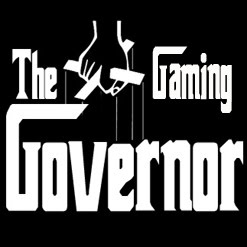Jesse Schell, Carnegie Mellon University Professor, takes game-life integration to the extreme, describing a world chock-full of sensors, where you could earn experience points from a toothpaste company for brushing your teeth, or tax deduction points from taking public transport to work instead of driving. Companies and even the government could have a vested financial interest in engaging consumers and citizens through game-like elements.
Prof. Schell, also looks at world of game development which will emerge from the popular "Facebook Games" era. The Academy of Interactive Arts and Sciences (which gives out the Oscars of the video game industry) recently awarded FarmVille the title of social game of the year. The game has more than 79 million monthly active users on Facebook, making it the biggest online game in the world. And yet it wasmade in a matter of weeks.
Activision recently made a worrying risk assessment of World of Warcraft, claiming the MMO giant could be toppled - rendered "obsolete" - by the emerging social gaming scene. "We also compete with other forms of interactive entertainment," said Activision in its 10-K annual report, "such as casual games like iPhone applications and other mobile phone games, and games developed for use by consumers on social networking sites.
Games and real life are colliding in unique ways. One professor at Indiana University, Lee Sheldon, replaced the traditional grading system in two of his game design classes with a system that was based on experience points (XP). Students began the program as avatars at level one, which corresponded to zero XP and a grade of 'F'. They gained XP by completing'quests', 'fighting monsters' and 'crafting'-- in other words, giving presentations, sitting quizzes and exams, and handing in projects. Like in most MMO's , the students were grouped into 'guilds' and had to complete quests solo, as guilds, or as 'pick up groups' with members of other guilds. "What they are missing is that we are teaching the gamer, social networking generation," he says. "I have no doubt the students will respond positively to any number of non-game-related lasses taught in a similar manner."
Schell said that in the past, and even today, game makers obsess over creating fantasy, an escape from the real world, a disconnect. But thesedays, value of "realness" is rising. "We live in a bubble of fake bullshit, and we'll do anything to get to what is real" he added, "There's this hunger for reality," citing Joe Pine and Jim Gilmore's book Authenticity: What Consumers Really Want. Organic food, reality TV, McDonald's Angus Burger -- they're all billed by their purveyors as more "real" than the average product, and recent game successes feed the consumer's hunger for the real, Schell said. These trend-changers aren't only about psychological trickery. What these products have, from Wii Fit to Mafia Wars to Achievements, is the ability to break through to reality. Wii Fit happens on screen, but it can change your real-world physique. Facebook games let you interact with real-world friends. Achievements give you bragging rights in the real world.
You don't believe any of this is possible?
Take a look at this video in which Pranav Mistry from TED is doing amazing things with The Sixth Sense. Mistry's work at MIT includes intelligent sticky notes, Quickies, that can be searched and can send reminders; a pen that draws in 3D; and TaPuMa, a tangible public map that can act as Google of physical world.
Please take your time to watch the video and post your thoughts in the comments.

No comments:
Post a Comment